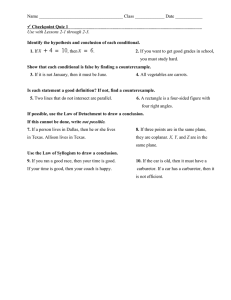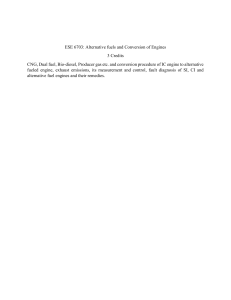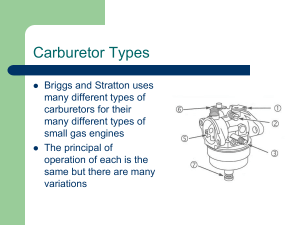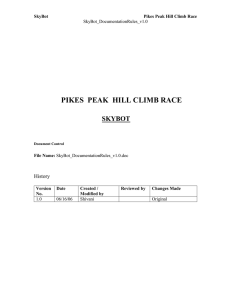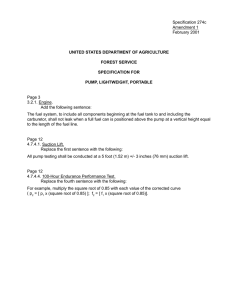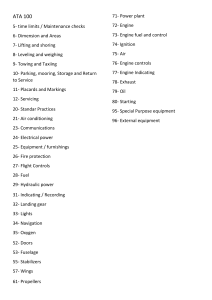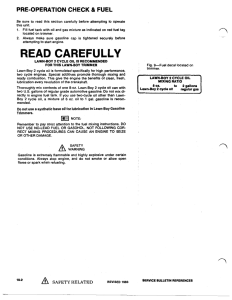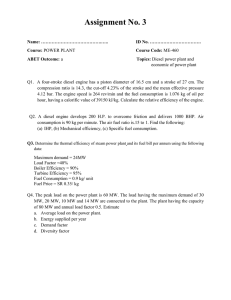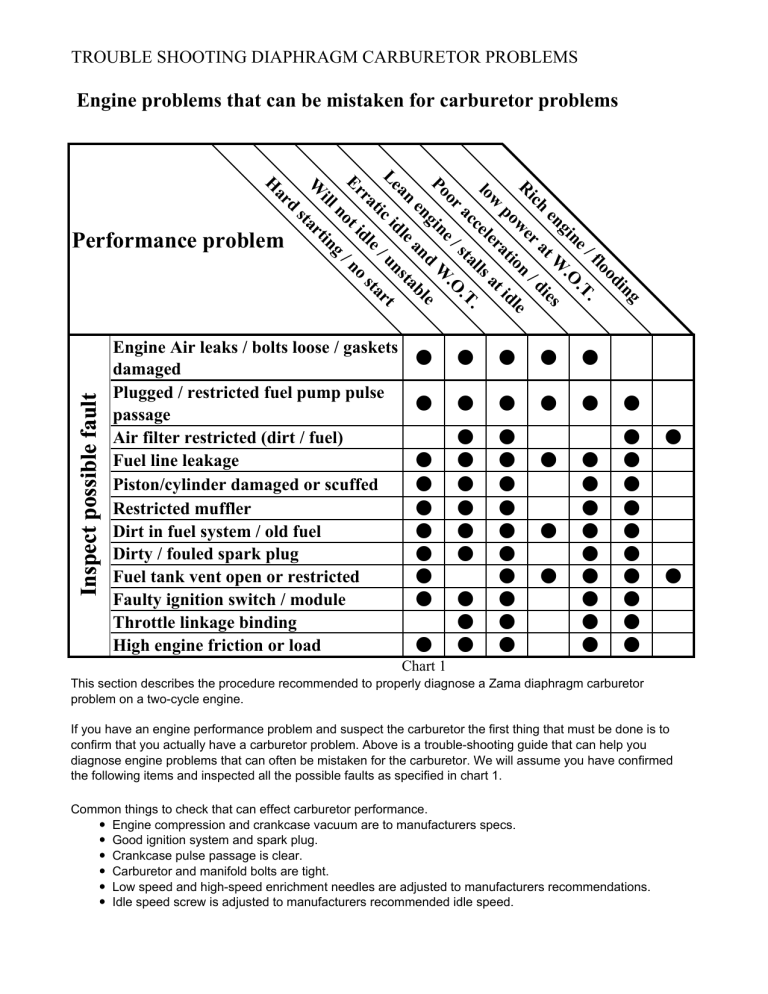
TROUBLE SHOOTING DIAPHRAGM CARBURETOR PROBLEMS Engine problems that can be mistaken for carburetor problems g in od lo / f T. ne .O. gi en t W ies h ra /d ic e R w le on po ati t id r w lo cele lls a . a ac st O.T . or e/ in d W e Po g en bl an le nsta an d Le ic i / u art t ra idle o st n t Er no g / ill t in ar st d ar Inspect possible fault W H Performance problem Engine Air leaks / bolts loose / gaskets damaged Plugged / restricted fuel pump pulse passage Air filter restricted (dirt / fuel) Fuel line leakage Piston/cylinder damaged or scuffed Restricted muffler Dirt in fuel system / old fuel Dirty / fouled spark plug Fuel tank vent open or restricted Faulty ignition switch / module Throttle linkage binding High engine friction or load Q Q Q Q Q Q Q Q Q Q Q Q Q Q Q Q Q Q Q Q Q Q Q Q Q Q Q Q Q Q Q Q Q Q Q Q Q Q Q Q Q Q Q Q Q Q Q Q Q Q Q Q Q Q Q Q Q Chart 1 Q Q Q Q Q This section describes the procedure recommended to properly diagnose a Zama diaphragm carburetor problem on a two-cycle engine. If you have an engine performance problem and suspect the carburetor the first thing that must be done is to confirm that you actually have a carburetor problem. Above is a trouble-shooting guide that can help you diagnose engine problems that can often be mistaken for the carburetor. We will assume you have confirmed the following items and inspected all the possible faults as specified in chart 1. Common things to check that can effect carburetor performance. y Engine compression and crankcase vacuum are to manufacturers specs. y Good ignition system and spark plug. y Crankcase pulse passage is clear. y Carburetor and manifold bolts are tight. y Low speed and high-speed enrichment needles are adjusted to manufacturers recommendations. y Idle speed screw is adjusted to manufacturers recommended idle speed. Carburetor related problems trouble shooting guide g in od lo / f .T. ne O gi W. ies en d h r at n / tion sed ic R we tio era clo po lera cel dle e w e lo cce n d ne a o d or ies pee d s Po n e low gi n En ith lea s w le / u p le Id ic id ads t o ra / l rt Er dle ta i h dle o s ic R ot i g / n n n ill rti W sta d ar H Possible fault Performance problem Idle mixture screw not properly adjusted Q High speed mixture screw not properly adjusted Throttle adjust screw adjustment Throttle shaft, plate (loose/worn) Choke shaft, plate (loose/worn) Fuel pump diaphragm (leaking/stiff) Strainer (restricted/plugged) Inlet needle valve stuck Inlet needle leaking (dirt/worn tip/worn seat) Metering lever, spring (worn/binding) Metering lever set to high Metering lever set to low Atmosphere vent hole, metering cover (restricted) Metering diaphragm gasket (leaking/stiff/cover screws loose) Welch plug leaking Low speed fuel passage restricted/dirty High speed fuel passage restricted/ dirty Q Q Q Q Q Q Q Q Q Q Q Q Q Q Q Q Q Q Q Q Q Q Q Q Q Q Q Q Q Q Q Q Q Q Q Q Q Q Q Q Q Q Idle and main mixture screws seats damaged Main nozzle check valve closed/restricted Q Q Main nozzle check valve leaking Accelerator plunger stuck (if equipped) Q Q Q Q Q Q Q Q Q Q Q Q Q Q Q Q Q Q Q Q Q Q Q Q Q Q Q Q Q Q Q Q After ruling out any engine related performance problems use chart 2 to help determine the fault for the carburetors malfunction. If the diagnoses result in action that involves repair of the carburetor then follow the disassembly and service instructions on the subsequent pages.
